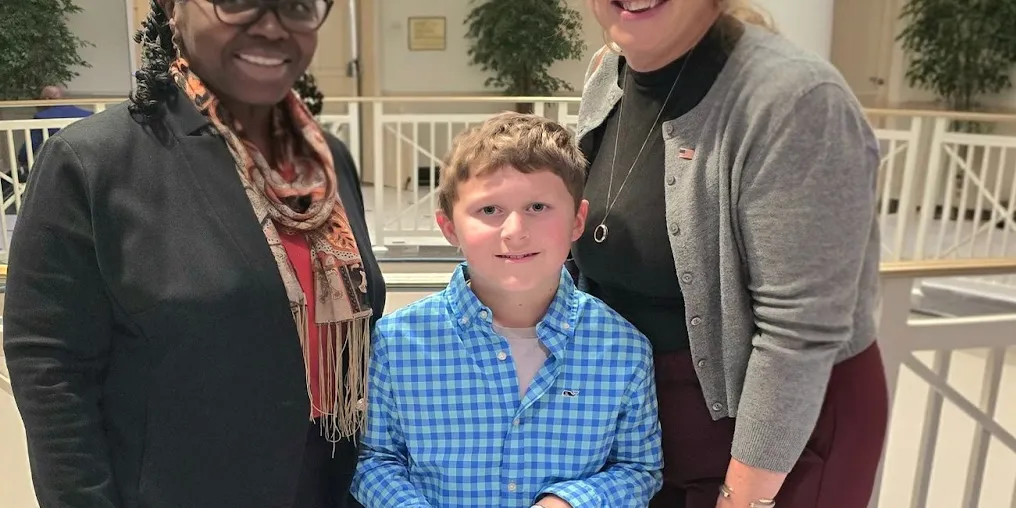
How Better Education and Legislation Can Transform Healthcare for the Majority of Veterans
How did your country report this? Share your view in the comments.
Diverging Reports Breakdown
How Better Education and Legislation Can Transform Healthcare for the Majority of Veterans
In April, Maryland became the first state in the nation to codify such universal screening into law. The Veterans Health and Wellness Foundation’s (VHWF) approach emphasizes advocacy and partnership. VHWF will unveil VetConnect360, a secure, cloud-based platform designed to shepherd veterans through the often-overwhelming maze of career change, benefits navigation, and personal well-being on the 30th of June. The platform provides veterans with a seamless, user-friendly portal that unifies claims, careers, and mental and behavioral health resources. It also connects users to moderated peer-support channels that combat isolation. The result is a 360-degree technology-enabled, human-powered ecosystem guiding veterans and military families to VA and community resources. For more information on the VetConnect 360 platform, visit www.veteransconnect360.org or call 1-800-273-8255. For confidential support on suicide matters call the Samaritans on 08457 90 90 90 or visit a local Samaritans branch, see www.samaritans.org.
Contributor
Hear this story
Research consistently shows that clinicians view knowledge of a patient’s military background as essential to whole-person care. Yet the question is still too easy to overlook in busy practices. As Dr. Evelyn Lewis, a retired U.S. Navy family physician, recalls, no provider has asked about her own service since she left the Navy in 2003. When a Veteran’s exposure history, mobility limits, or behavioral triggers remain undisclosed, critical nuances can be missed.
Rather than criticize clinicians, Dr. Lewis and the Veterans Health and Wellness Foundation’s (VHWF) approach emphasizes advocacy and partnership. They help healthcare and allied healthcare professionals incorporate a brief service history screen into routine intake and give them the confidence to act on what they learn.
In April, Maryland became the first state in the nation to codify such universal screening into law, a breakthrough embodied in SB 0740, the SFC Matthew Fast Act. Inspired by Sergeant First Class Fast’s story and championed by a bipartisan coalition, the law establishes a new, forward-looking standard of care. The measure authorizes every healthcare facility to ask patients whether they belong to the service-member community and to record that information in their medical chart.
This legislation empowers clinicians to spot service-related risks early, tailor treatment plans more precisely, and requires facilities to meet Joint Commission standards aimed at improving healthcare equity for this vulnerable population. A “service-member community member” is defined as a current service member, veteran, spouse, child, or stepchild. Maryland’s action offers a practical blueprint for health systems everywhere. When service history is visible, care becomes safer, more informed, and profoundly more responsive to those who have worn the uniform.
VHWF’s educational strategy starts long before clinicians earn their credentials and extends well beyond the walls of academia. In university lecture halls, future physicians, nurses, pharmacists, and psychologists participate in interactive panels and case-based workshops that introduce the fundamentals of military culture, service-related exposures, and the nuanced ways combat stress can surface in everyday symptoms.
Once those students become licensed professionals, the learning continues through CME-accredited courses that translate theory into practice. A clinician might explore how burn-pit exposure alters a differential diagnosis, or how a traumatic brain injury can complicate standard pain-management protocols.
Finally, the Foundation brings knowledge to the broader community. Plain-language briefings help veterans, caregivers, family members, civic leaders, and others recognize when a military background may shape health choices or behavior, including where they live, work, play, and pray.
On the 30th of June, VHWF will unveil VetConnect360, a secure, cloud-based platform designed to shepherd veterans through the often-overwhelming maze of career change, benefits navigation, and personal well-being. Its conversational interface functions like a digital battle buddy. Sophisticated algorithms translate a veteran’s answers into smart checklists that track claims deadlines, medical appointments, and appeal windows.
A built-in career suite assembles powerful résumés, matches transferable skills to open positions, and even conducts live interview coaching. Beyond paperwork, the platform opens doors to the essentials of daily life, such as housing, food security, and legal assistance. It also connects users to moderated peer-support channels that combat isolation. The result is a 360-degree technology-enabled, human-powered ecosystem guiding veterans and military families to VA and community resources.
The Foundation’s long-term roadmap weaves three strands—education, technology, and policy—into a single braid of change. Comprehensive training ensures that both budding and seasoned clinicians possess the cultural competence to see military service as a vital sign, not an afterthought.
Technology provides veterans with a seamless, user-friendly portal that unifies claims, careers, and mental and behavioral health resources, placing a previously disjointed system in the palm of a hand. At the policy level, VHWF advocates for a simple but transformative innovation: adding one question, “Have you ever served in the military?” to every intake form nationwide.
Together, these pillars form a scalable model any state can adopt, setting the stage for a future in which a veteran’s service is never hidden in the medical record, and high-quality support is only a click, a call, or a community away.
This article is for informational purposes only and does not substitute for professional medical advice. If you are seeking medical advice, diagnosis, or treatment, please consult a medical professional or healthcare provider.
Media Contact
Name: Evelyn L. Lewis, MD
Email: elewismd@myvhwf.org
